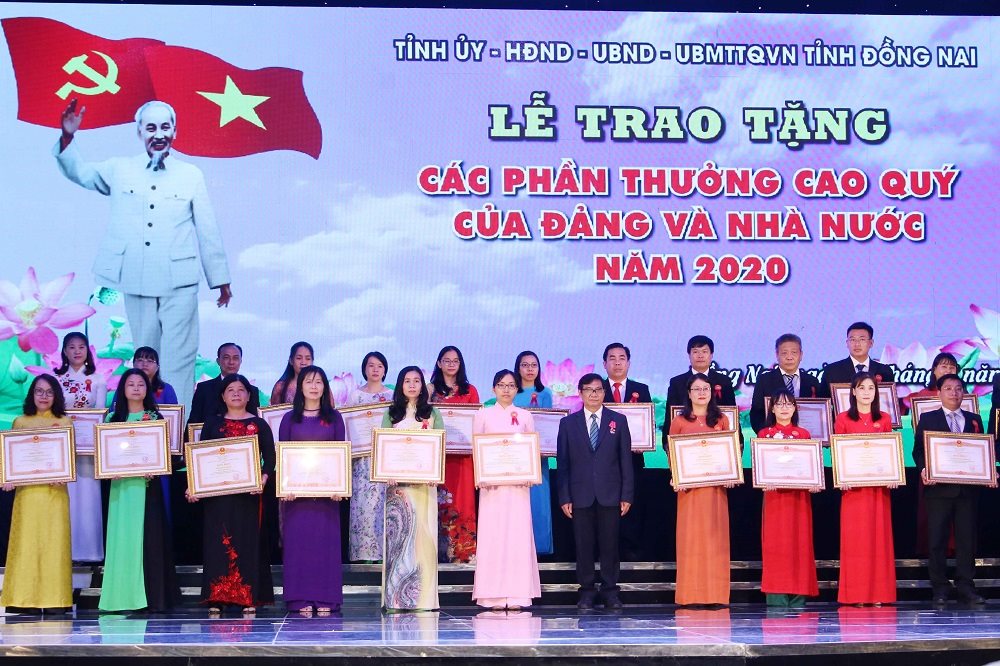At a ceremony to present noble rewards of the Party and the State in Dong Nai Province on July 31, 2020, Nestle Vietnam was awarded the prime minister’s certificate of merit for its achievements and contributions to the country’s socioeconomic development and the community.

The reward proves Nestlé Vietnam’s great efforts and achievements during 25 years of investment and development in Vietnam.
Binu Jacob, CEO of Nestlé Vietnam, said: “Nestlé Vietnam has received enthusiastic support from the Vietnamese Government, ministries, agencies and localities to overcome multiple difficulties and challenges in its business activities. The company has obtained many achievements, especially Vietnamese consumers’ confidence and support, which has stimulated the company to expand its operation, contributing to and accompanying Vietnam’s sustainable and inclusive development”.
According to Jacob, when investing in Vietnam, besides the goals of serving local consumers and ensuring the sustainable development, the company has focused on corporate social responsibility activities.
Speaking at the ceremony attended by Vice State President Dang Thi Ngoc Thinh, vice chairwoman of the Central Council for Emulation and Commendation, Dong Nai Chairman Cao Tien Dung said all individuals and collectives which were awarded the merit certificates had remarkable achievements. They have always been creative and innovative in their jobs and deserve to be honored.
Established in Dong Nai in 1995, Nestlé Vietnam is currently operating four plants in Vietnam with more than 2,300 employees. The investment in Nestlé Vietnam has reached US$600 million. The company has been recognized as one of the foreign-invested firms contributing significantly to Vietnam’s sustainable growth.
In the past few years, Nestlé Vietnam has repeatedly been listed in the country’s top 100 largest taxpayers and top 10 most sustainable companies. The company has also received the certificate of merit from the government of the northern province of Hung Yen for its substantial contributions to the provincial budget in 2019.

Nestlé has prioritized sectors which bring profit for the company and benefits for the society, such as nutrition, mainly focusing on children. It has also contributed to the development of communities in rural areas and managed natural resources for the future.
With an aim to improve the physical and mental health, physique and living conditions of Vietnamese children, Nestlé Vietnam, through its Nestlé MILO brand, has coordinated with the Ministry of Education and Training, the Vietnam Sports Administration and the coordination board of the Comprehensive Program on the Development of Vietnamese People’s Physical Health and Physique in the 2011-2030 period to carry out the “Active Vietnam” program.
Since its first days in Vietnam, Nestlé Vietnam has offered the best possible support for the local coffee sector. The company has directly poured some US$600-700 million in the country per year through its purchase of locally-produced coffee. In addition, it has conducted projects to provide coffee cultivation techniques to more than 230,000 coffee growers in the Central Highlands provinces.
To develop a green, clean and beautiful Vietnam, Nestlé Vietnam has committed to using 100% of recyclable and reusable packaging products by 2025 when participating in a campaign against plastic waste launched by the prime minister in 2019. Besides La Vie, it is one of the nine members of a packaging recycling organization, named PRO Vietnam, which has set a target to collect and recycle all packaging materials used on the market by participating members by 2030.










